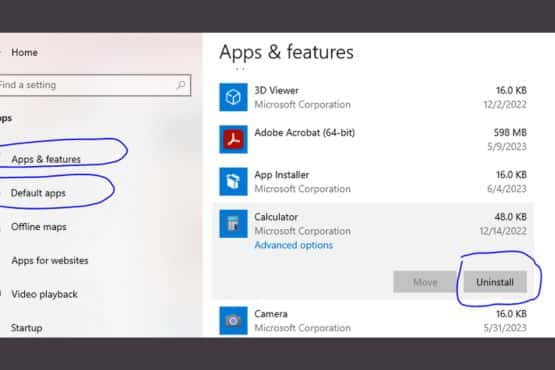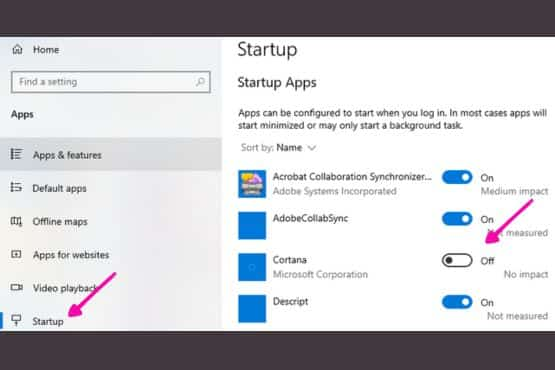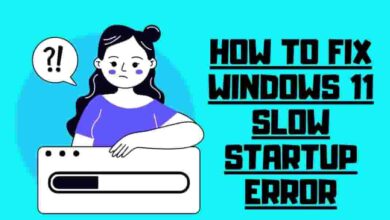How to Clean Your Computer Windows 10: PC Performance

Do you want to avoid your Windows 10 computer running slow, freezing up, or cluttering with unnecessary files and apps? Don’t worry; you’re not alone. Many people face the same issues and crave a clean, well-functioning system that allows them to focus on their work or enjoy their leisure time without constant interruptions.
Cleaning your computer may seem daunting initially, but it’s a breeze with the proper guidance and tools. In this article, we’ll walk you through some simple yet effective steps to clean up your Windows 10 PC and have it running like new in no time.
Imagine effortlessly navigating through your favorite applications without waiting for them to load or respond. Picture yourself opening multiple browser tabs seamlessly without any lag or crashes.
That’s what achieving digital mastery feels like! By following our easy-to-understand guide on how to clean your computer Windows 10 style, you’ll be back in control of your device’s performance and productivity levels in no time at all. Say goodbye to frustration and hello to a more efficient computing experience!
Contents
- 1 Key Takeaways
- 2 Disk Cleanup
- 3 Delete Large Folders
- 4 Uninstall Bloatware
- 5 Empty Recycle Bin
- 6 Defrag Drives
- 7 Disable Startup Apps
- 8 Remove Browser Extensions & History
- 9 Reinstall Windows
- 10 Fake Cleaning Apps
- 11 Enhanced Performance
- 12 Frequently Asked Questions
- 12.1 How can I Clean up Windows 10?
- 12.2 What are Some tools I Can use to Clean up Windows 10?
- 12.3 Can Cleaning up My Windows Help Computer Run Faster?
- 12.4 How Can I Free up More Space on my Windows Computer?
- 12.5 What are some Risks Associated with not Cleaning your Windows computer?
- 12.6 How often Should I Clean up my Windows Computer?
- 12.7 What files can I Delete to Free up Space on my Windows Computer?
- 13 Conclusion: Clean Windows 10 Computer
Key Takeaways
- Regularly performing PC maintenance tasks is crucial for keeping your computer running smoothly.
- Removing unnecessary files and apps frees up valuable disk space.
- Turning off unnecessary startup apps reduces boot-up times for a more streamlined experience.
- Trusted methods and reliable software are essential for maintaining a clean and optimized system.
Disk Cleanup
You can efficiently declutter your Windows 10 computer using Disk Cleanup. This handy tool quickly scans and removes unnecessary files from your System.
This built-in Windows cleaner is designed to help you maintain a clean and efficient Windows operating system by identifying and deleting unneeded files that take up valuable disk space.
To start the disk cleanup process, search for ‘Disk Cleanup‘ in the Start menu and launch it from the search results.

Select the drive you want to clean, let Disk Cleanup analyze it, then choose which files you want to delete before clicking ‘OK.’

Following these simple steps with the disk cleanup tool frees up disk space and improve your computer’s overall performance – giving you more room to master other aspects of your Windows 10 experience!
Delete Large Folders
Don’t let massive, unused folders clog up precious storage space – take control and reclaim it with Windows 10’s built-in tool! To clean up your computer and delete those large folders, press the Windows key and ‘I’ to open the Settings app. From there, follow these steps:

- Navigate to System> Storage > Other
- Identify memory-hogging folders consuming a significant portion of your hard drive
- Delete them manually in File Explorer for a cleaner and more efficient computer

This simple process on your Windows 10 machine frees up valuable storage space and satisfies that subconscious desire for mastery over your digital domain.

So go ahead and declutter your computer’s hard drive today!
Uninstall Bloatware
It’s time to regain control and rid yourself of that pesky bloatware, freeing up space for what truly matters on your PC! To uninstall bloatware and clean your computer, follow these simple steps:

- Access the Start menu on your Windows 10 or Windows 11 system.
- Locate the built-in app you wish to remove.
- Right-click on it to open a contextual menu.
- Select ‘Uninstall’ to initiate the process.
A prompt will appear asking for confirmation; click ‘Uninstall’ again to proceed. Removing unused apps can optimize your PC cleaner performance and free up space.
| Action | What It Does | Why It Matters |
|---|---|---|
| Access Start Menu | Opens the list of installed apps | Allows you to find built-in apps |
| Locate App | Identifies the bloatware you want to remove | Ensures the correct app is targeted for removal |
| Right-Click & Uninstall | Initiates uninstallation process | Removes unwanted apps from the system |
| Confirm Prompt | Finalizes the removal process | It frees up valuable space on your PC |
Follow these steps diligently and watch as your streamlined computer experience satisfies that subconscious desire for mastery!
Empty Recycle Bin
Clearing out that overflowing Recycle Bin can be a breeze, and you’ll love the extra space it frees up on your System!
When cleaning up your Windows computer, remember the importance of regularly emptying the Recycle Bin to maintain a clean and organized PC.

To empty the Recycle Bin, locate its shortcut on your desktop, right-click to access the contextual menu, and select ‘Empty Recycle Bin.’
A prompt asks for confirmation; click ‘Yes’ to proceed. By incorporating this simple step into your routine, you’ll not only optimize storage efficiency but also improve the performance of your Windows 10 computer. So clean up your computer – starting with that pesky Recycle Bin!
Defrag Drives
Defragging drives can work wonders to boost your PC’s performance, reorganizing fragmented data and enhancing overall efficiency.

To defrag drives and clean your computer in Windows 10, follow these simple steps:
1. Open the Start menu and type ‘Defragment and Optimize Drives’ in the search bar.
2. Select the corresponding option from the search results to open the ‘Optimize Drives window.
3. Choose your main hard drive (usually labeled as ‘C:’) from the list of available drives.
4. Click the ‘Optimize’ button to start defragmentation.

Regularly performing this process ensures that your operating system runs smoothly and maintains its peak performance level. Not only will this keep your PC running efficiently, but it’ll also make you feel like a true master of clean Windows management!
Disable Startup Apps
After defragmenting your drives to improve overall performance, another effective way to clean your computer and speed up Windows 10 is by disabling unnecessary startup apps.
By managing these apps, you can optimize your PC’s performance during boot-up and ensure a smoother user experience.

- To disable startup apps on Windows 10, press the Windows key and ‘I’ together to open the Settings app, then select ‘Apps’ followed by ‘Startup’ in the left sidebar.
- From the list of apps that appear, locate those you don’t need at launch and turn off their respective toggle switches.
This simple yet impactful step will help you keep your computer running efficiently while reducing boot-up times for a more streamlined experience.
And remember, if you ever change your mind or find an app necessary at startup, it’s just as easy to re-enable it in the future!
Remove Browser Extensions & History
Pay attention to the importance of tidying up your web browsers, as removing unused extensions and deleting browsing history can significantly enhance your online experience.
Remove browser extensions you no longer use to clean your Windows 10 or 11 computer. Right-click on each extension and select “Remove.”Next, clear your browsing history to maintain privacy and optimize browser performance.
Head to the Settings menu in your browser and look for options for clearing browsing data. Here’s a quick guide for Google Chrome users:
| Action | Google Chrome Steps |
|---|---|
| Remove Browser Extensions | Right-click on the extension > Select “Remove.” |
| Access Browsing History | Click on the three-dot menu > History |
| Clear Browsing Data | Go to Settings > Privacy & Security > Clear Browsing Data |
By regularly cleaning up your browsing history and removing unused extensions, you’ll contribute to a better-performing browser, enhancing both efficiency and enjoyment while using Windows 10 or 11 on your computer.
Reinstall Windows
Are you feeling overwhelmed by the chaos on your PC? Reinstalling Windows 10 might be the solution to regain control and optimize performance.
Following a few simple steps, you can clean your PC, update it to the latest version of Windows 10, and preserve your files while removing unnecessary bloatware.

Remember that reinstalling Windows will remove all previously installed apps, so it’s essential to back up important data and note any required license keys for software reactivation.
Here are three crucial aspects of this process that will help you achieve a cleaner and more efficient system:
System Files:
When you reinstall Windows 10, the process updates your system files to their most recent versions. This ensures optimal Microsoft support and compatibility with other applications.
PC Maintenance:
Regularly performing maintenance tasks like updating drivers, scanning for malware, and optimizing hard drive space is crucial for keeping your computer running smoothly. Reinstalling Windows allows you to start fresh and establish good habits in maintaining your System’s health.
Personal Files:
While reinstalling Windows does retain ‘some’ personal files, it’s always best practice to create backups before initiating any significant changes. This guarantees that your valuable data remains secure even if something goes wrong during reinstallation.
By taking the time to reinstall Windows 10 as part of your PC maintenance routine, you’ll enjoy an organized workspace free from clutter while improving overall system performance – a win-win situation!
Fake Cleaning Apps
Beware of fraudulent cleaning applications, as they’re often riddled with malware and fail to deliver on their promises, potentially causing more harm than good.
When cleaning up your Windows 10 or 11 computer, it’s essential to avoid fake cleaning apps and stick to reputable sources and well-known brands.
Please do your research, read reviews from trusted sources, and verify the legitimacy of any software before installing it on your PC.
By being cautious and discerning when choosing cleaning tools for your computer, you can protect yourself from scams while maintaining a clean and optimized System.
Remember, there’s no substitute for trusted methods and reliable software to keep your Windows 10 or 11 PC running smoothly.
Enhanced Performance
Now that you’re aware of fake cleaning apps and their potential dangers let’s focus on enhancing your computer’s performance correctly.
Cleaning your computer regularly can significantly improve its speed and overall efficiency, allowing you to make the most out of your Windows 10 system.
To achieve enhanced performance, delete unnecessary files, empty the recycle bin, uninstall unused programs, and run built-in tools like Disk Cleanup or Storage Sense.
Keep your software up-to-date and optimize your startup items to ensure a smoother experience with your technology.
By taking these steps and maintaining a clean system, you’ll master the art of boosting your computer’s performance quickly!
Frequently Asked Questions
How can I Clean up Windows 10?
You can clean up Windows 10 using the built-in disk cleaner, removing temporary and junk files, and uninstalling unwanted programs. Additionally, you can use a Windows cleaner to remove other files to free up more space on your computer.
What are Some tools I Can use to Clean up Windows 10?
Some tools to clean up Windows 10 are the built-in disk cleaner, third-party disk cleaner tools, registry cleaner, and anti-malware software.
Can Cleaning up My Windows Help Computer Run Faster?
Cleaning up your Windows 10 regularly can help your computer run faster. By removing temporary files, junk files, and unwanted programs, you can free up space on your computer and reduce the load on your system’s resources, making it run more efficiently.
How Can I Free up More Space on my Windows Computer?
You can free up more space on your Windows 10 computer by removing unnecessary files and folders, uninstalling unwanted programs, cleaning up temporary and junk files, and moving files to another drive.
What are some Risks Associated with not Cleaning your Windows computer?
Not cleaning your Windows 10 computer regularly can result in low disk space, slow performance, and reduced efficiency. It can also leave your computer vulnerable to malware attacks and may compromise your data.
How often Should I Clean up my Windows Computer?
It would be best to clean up your Windows 10 computer at least once a month. However, you can increase or decrease the frequency depending on how often you use your computer and the space used.
What files can I Delete to Free up Space on my Windows Computer?
You can delete temporary files, junk files, Windows update files, and other files that take up much space on your computer. However, keep important files and personal data safe before deleting anything.
Conclusion: Clean Windows 10 Computer
it’s essential to regularly clean your Windows 10 computer to keep it running smoothly and efficiently. You’ll surely notice a significant improvement in your System’s performance by following the steps mentioned, such as using Disk Cleanup, uninstalling bloatware, and defragging drives.
Remember to be cautious of fake cleaning apps and avoid falling for scams that could harm your computer. Proper maintenance and care allow you to enjoy a faster and clutter-free computing experience.



